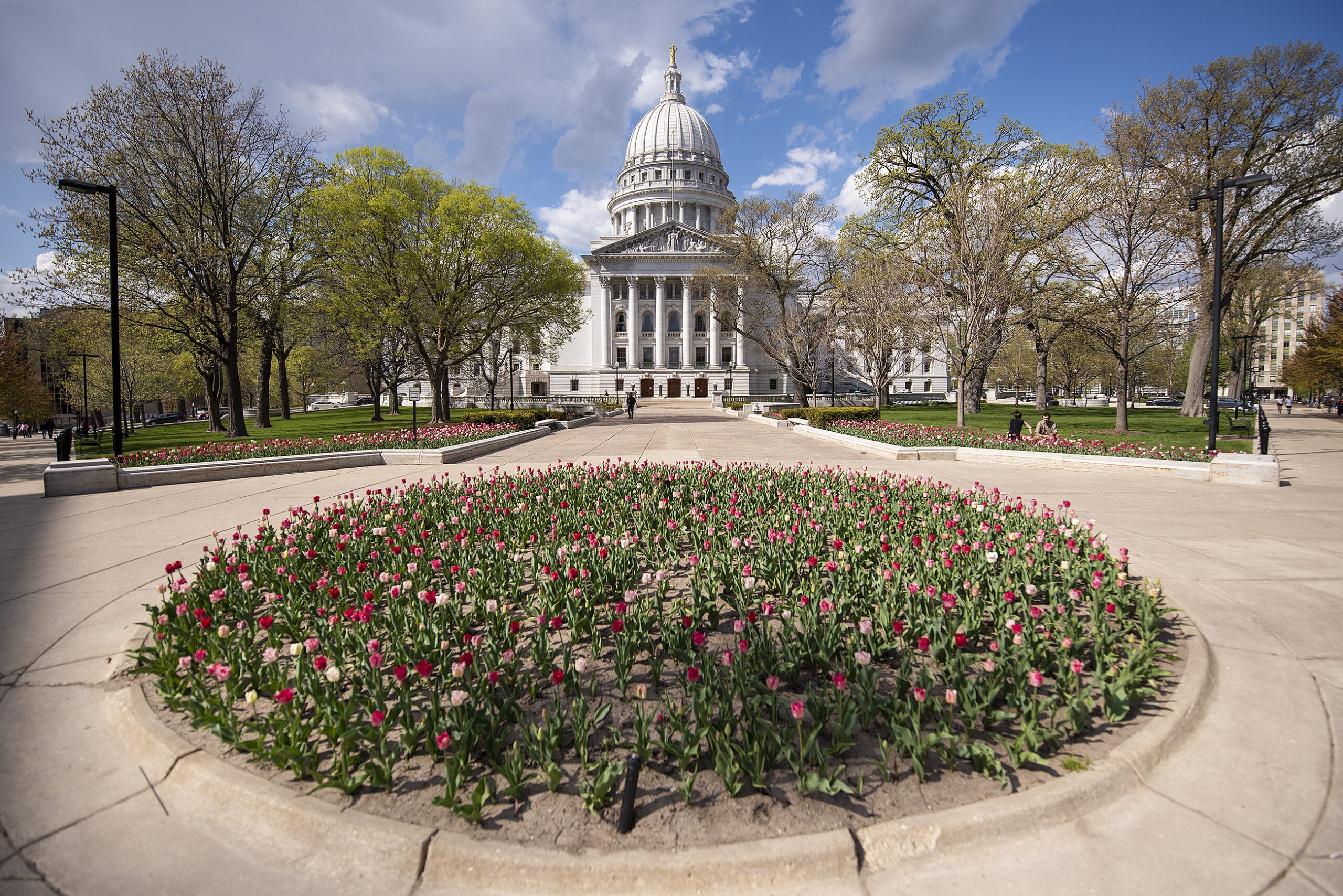Access to public health insurance and unemployment insurance in Wisconsin would be tightened under a slate of bills approved largely along party lines in the state Assembly on Tuesday.
Republican lawmakers approved the legislation they say is aimed at addressing the state’s workforce shortage. They argued that at a time of record unemployment — 2.5 percent in March — no employers should struggle to fill jobs.
Democrats argued that people who can work but don’t are facing a different crisis: lack of access to child care, housing and transportation. They called on their colleagues to address those issues instead of unemployment insurance.
Stay informed on the latest news
Sign up for WPR’s email newsletter.
The bills passed on Tuesday included five Republicans say will restrict people from using unemployment insurance instead of working. Republicans also approved legislation to stop communities from using public dollars to fund guaranteed income programs; collect data on how state workforce development projects operate and disenroll people from BadgerCare, the state’s public health insurance program for low-income people.
The bills were passed after hours of impassioned debate with Democrats, who argued that these changes to public programs would harm low-income people and the working poor by making it harder to access needed benefits.
The legislation next heads to the GOP-controlled Senate, which is also expected to approve them. Gov. Tony Evers has vetoed similar bills passed during prior legislative sessions, and is likely to do the same with these. The bills were re-introduced earlier this month, after Wisconsin voters overwhelmingly approved a nonbinding advisory referendum supporting the idea that “able-bodied, childless adults” must be required to look for work if they receive public benefits.
Asked by reporters why GOP leaders would bring forward bills unlikely to be signed, Assembly Speaker Robin Vos, R-Rochester, cited the results of that election.
“Hopefully Gov. Evers looks at the results of what happened around the state, and realizes that he should have probably signed them before and that most of these bills should be bipartisan,” Vos said.
Put together, the unemployment insurance bills would add reasons for which someone could be denied unemployment payments, create a reporting process for when a person turns down or no-shows an interview or job offer and expand the system to check for fraud and abuse.
Rep. David Armstrong, R-Rice Lake, cited his experience as his county’s economic development director in arguing that the Legislature needs to crack down on improper use of unemployment programs.
“I tell people, I can get you a job tomorrow if you can walk and breathe,” he said. “Seriously. Good jobs.”
Democrats argued that reliance on unemployment insurance is not what’s stopping people from taking jobs.
“People are not lying around, refusing to get up. Wisconsinites are not lying in a hammock. They’re racing around a track. They’re racing and racing and racing and trying to keep up,” said Robyn Vining, D-Wauwatosa. “But the game got harder. And we’re not just running anymore. There’s hurdles on the track now.”
Rep. Sylvia Ortiz-Velez, D-Milwaukee, argued that broader demographic challenges in the state were a greater driver of the labor shortage.
“I think the bigger picture is that, quite frankly, we need people. Wisconsin laws and practices are driving people away from our state,” she said.
Each of the five bills were passed along pure party lines, with all Republicans in support, and all Democrats voting in opposition.
Disenrolling people from BadgerCare and limiting guaranteed income programs
On Tuesday, the state Assembly passed other bills on party lines that would affect the state’s public programs. One would stop some people from receiving BadgerCare, another would limit communities from using public funds for guaranteed basic income programs and a third would require state agencies that run workforce development programs to collect certain performance indicators.
As written, the BadgerCare bill would make it so that BadgerCare Plus recipients would no longer be automatically re-enrolled in the public health care system. The authors of the bill argue that the ranks of the program swelled during the COVID-19 pandemic, during which, under federal law, no person could be disenrolled from Medicaid programs.
The state would reconsider their status every six months under the bill. The bill’s authors say there will also be increased checks on fraud and abuse in the system, which is used by about a quarter of Wisconsinites.
Republicans argued that overuse of BadgerCare will make it a less effective program for people in need.
“We are not trying to kick people off that are truly needy,” said Rep. Clint Moses, R- Menomonie. “This bill simply prevents fraud in our state, and helps get the needy the services that they need.”
Democrats said the bill would create new hurdles, rather than prevent fraud.
“It creates so many barriers,” said Rep. Lisa Subeck, D-Madison. “And that will keep people who are eligible, who should have access to our Medicaid program, off of the program.”
Republicans also argued guaranteed income programs discourage people from looking for work.
Currently, Madison is the only Wisconsin city to offer a guaranteed income program. That one is privately funded, and is being eyed by other communities as an experiment. Republican lawmakers who spoke in favor of blocking such programs from receiving taxpayer dollars said the bill wouldn’t limit how private money is used.
“It is up to the locals to decide this. This is a simple bill that says you can do what you want; you just can’t use tax money,” said Rep. Todd Novak, R-Dodgeville.
Rep. Samba Baldeh, D-Madison, called the bill “a solution in search of a problem.”
“We do not have the extra time to spend and create solutions for problems that do not exist,” he said, adding that it was also a matter of supporting local control.
Also on Tuesday, lawmakers passed legislation requiring state agencies to track and report how many participants in workforce development programs go on to work in unsubsidized jobs or receive advanced education or training the year following involvement in such a program.
Wisconsin Public Radio, © Copyright 2025, Board of Regents of the University of Wisconsin System and Wisconsin Educational Communications Board.





